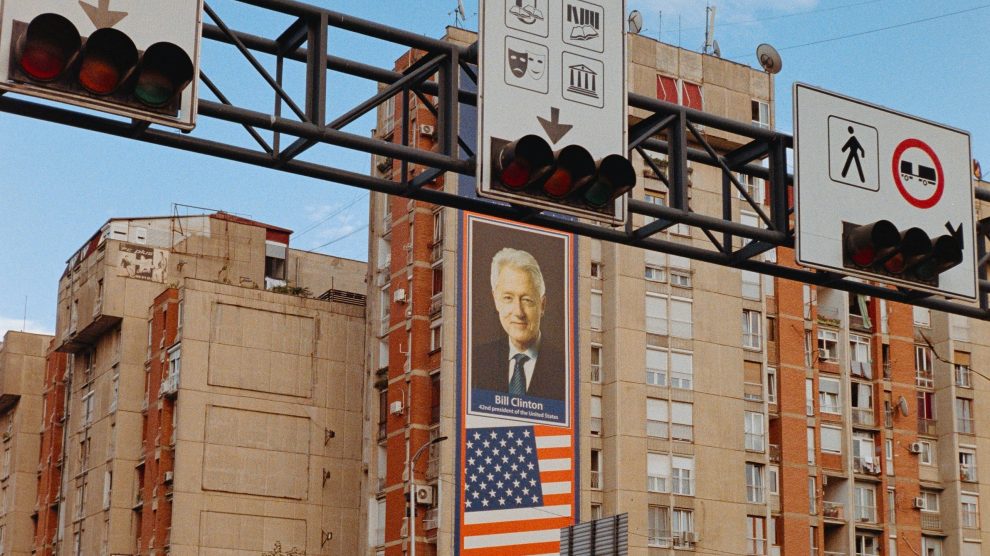To join NATO, Kosovo needs the approval of all 32 members, only 28 of whom recognise Kosovo as an independent country.
As Kosovo commemorates the 25th anniversary of NATO’s intervention against Yugoslavia during the Kosovo War, the country has embarked on a new chapter by gaining acceptance as an associated member state by NATO’s parliamentary observers.
This signifies progress towards enhancing security in the Western Balkans, but given Serbia’s aggression, it’s still not enough. Kosovo has welcomed this decision with optimism, seeing it as a means to strengthen security partnerships with NATO. NATO’s move is indicative of the region’s improving security situation, especially with Serbia’s constant provocations near the Kosovo border.
- Kosovo has the right to insist on use of the euro, despite Serbia’s objections
- Reviving the EU’s Western Balkans growth plan
- Serbia’s Vučić speaks loudly but carries a small stick
Serbian President Aleksandar Vučić has now publicly declared that he is waiting for the best opportunity to invade Kosovo. Radio Free Europe analysed footage shared by Kosovo Prime Minister Albin Kurti online which showed the location of Serbian military vehicles. The footage shows Serbian soldiers approaching their parked military vehicles near the border with Kosovo.
According to Kurti, the presence of military vehicles just a few metres from the border is not normal. Memories are still fresh from terrorist attacks in Banjska last September, within Kosovo’s territory, when a Kosovar police officer was killed. Kurti remains understandably worried about a repeat of these attacks.
The army vehicles are a mere 350 metres from the border with Kosovo. This proximity strongly suggests a violation of the agreement with KFOR, a NATO-led international peacekeeping force. Per the agreement Serbia signed, the Kosovo police can patrol up to a kilometre away from the border. The Armed Forces of Serbia must inform KFOR units if they come any nearer. Serbia appears to be in flagrant violation of its commitment to stay away from the border with Kosovo.
Back to square one
The situation has become serious enough for the United States to involve itself. The US announced it had begun monitoring Serbia’s army movements near the Kosovo border. It says any use of force by Serbia would be unacceptable and could jeopardise the security of the whole region.
US condemnation indicates just how unwelcome provocations from Serbia are. NATO forces continue to be responsible for protecting both Albanians and Serbs. In case of any turmoil or use of force, the normalisation of relations between Kosovo and Serbia returns to square one. The two countries have been negotiating the normalisation of relations for 13 years now.
Despite ongoing provocations, Kosovo must remain resilient and prepared. Serbia continues to consider Kosovo part of its territory, despite Kosovo’s declaration of independence in 2008. Around 117 countries recognise Kosovo’s independence, including the US, UK, Canada, France, Italy, and Germany.
As an associate NATO member, Kosovo now enjoys new rights such as presenting resolutions to the NATO parliamentary assembly, but it’s not enough. Kosovo needs full NATO membership. It aims to become part of NATO’s Partnership for Peace Programme, an initiative which enhances trust between NATO member states and other states in Europe. To join NATO, Kosovo needs the approval of all 32 members, only 28 of whom recognise Kosovo as an independent country. Spain, Greece, Romania, and Slovakia do not.
Security challenges in the region from Serbia and Russia ought to hasten considerations for Kosovo. Still, Kosovo has a long way to go to reach its ultimate goal of becoming a NATO member. It could happen after the Kosovo Security Force transition phase, but more work lies ahead.
When NATO intervened against Yugoslavia, it protected Kosovo from ethnic cleansing and stopped the killing of innocent people. Celebrating that intervention is a timely reminder of NATO’s role in helping protect human rights, peace, freedom and democracy in the Western Balkans.
Photo by Victor Kravchenko on Unsplash.
Unlike many news and information platforms, Emerging Europe is free to read, and always will be. There is no paywall here. We are independent, not affiliated with nor representing any political party or business organisation. We want the very best for emerging Europe, nothing more, nothing less. Your support will help us continue to spread the word about this amazing region.
You can contribute here. Thank you.







Add Comment